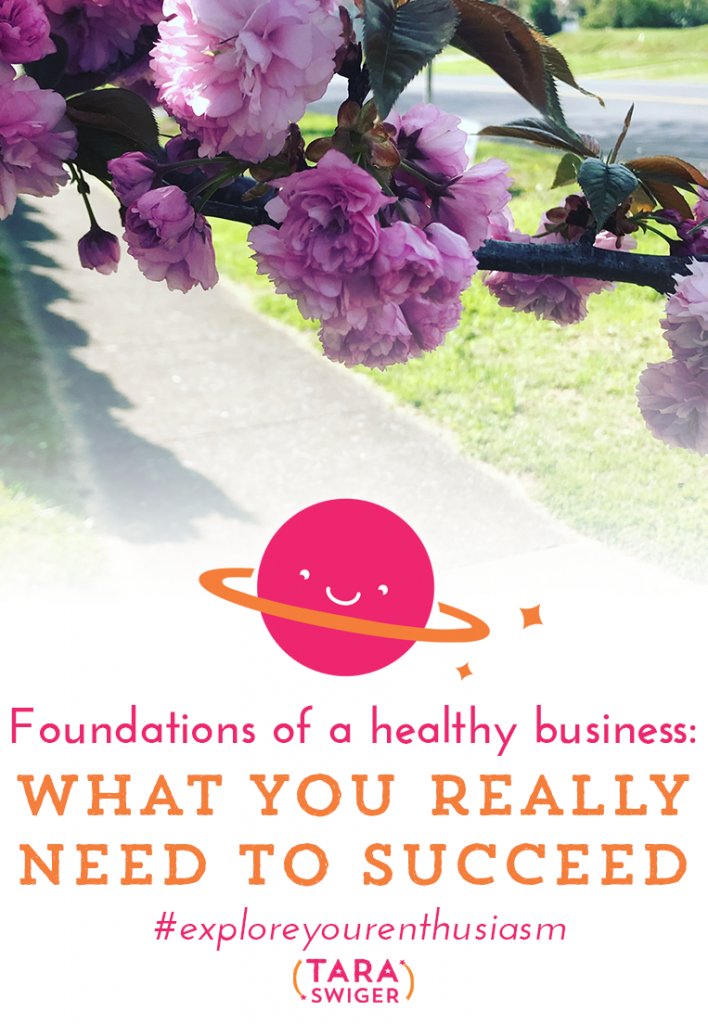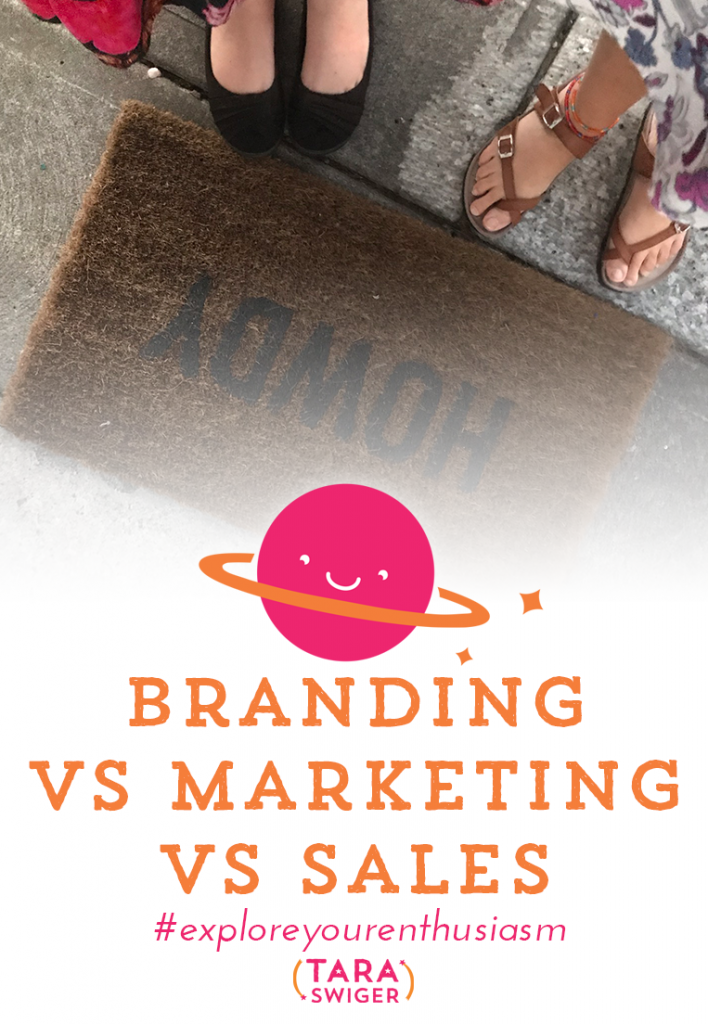Podcast: Play in new window | Download
Everybody knows it's too risky to have a business. Everybody is following their passion and making a million dollars doing it. Everybody knows you need to be on Instagram. Or have an email list. Everybody knows you can’t grow on Instagram on anymore.
Which of these statements is true?
It depends on your own personal “everybody”. Today we're going to talk about who “everybody” is and how upgrading your “everybody” can improve your life.
Today we're going to talk about how your concept of “everyone” is shaping your biz and life and happiness, and how you can trade it all in for a better “everyone”.
We'll get into the specifics in a minute, but before we do I want to remind you that the Starship, which is a brilliant way to improve your “everyone” is open now. You can find it at Taraswiger.com/Starshipbiz. It's a 90 day program that will help you uncover your mission, your profitability and your best marketing plan.
I first came across this idea of a personal “everybody” in Martha Beck's Finding Your Own North Star, but psychologists have been studying it for awhile – they call it “the generalized other”.
All of us have a concept of a (or many) “generalized other” – it's what you think other people think about you. It's what you mean by “other people” or “everyone”.
We use this concept of “everyone” to determine our actions and to figure out what's expected of us.
However, it's faulty. Because obviously there is no uniform “everybody”. Everybody doesn't come to the same conclusions or have the same beliefs or live the same life.
But your personalized idea of “everybody” can feel large and overwhelming and uniform.
Martha Beck writes, “everybody’s Everybody is composed of just a few key people.” You may have a few different groups of “everybody” – everybody believes this is the best way to parent, everybody says this is what you have to do in business.
But this is really just a few people.
You consider these few key people's opinions when you're making your own decisions. And this is how your “everybody” holds you back – if your “generalized other” is the wrong people it'll keep you from feeling like it's safe or “right” do something. The wrong everybody is people who haven't done what you want to do or just don't know about the things you care about.
In order to fit it, belong and stay safe, you won't do what “everybody” disapproves of, or what “everybody” fears.
The solution: Upgrade your Everyone.
This doesn't mean you break up with the people in your life, it's just that you don't let their opinion shape YOUR opinion. You pick who's opinion and examples you're going to pay attention to.
It can be really simple to start – you just get to know people who have done and are doing what you want to do. You get to know people who have really different lives than you.
You've already upgraded your Everybody a few times in your life – when you started going to friend's houses. When you started your first job. When you met other makers.
To grow the next stage of your business or dream, you may need to upgrade your everybody.
This is why the Starship, my online community for makers and artists, and other groups like it, can be so powerful – because you meet a whole bunch of others you can adopt into your “generalized other”.
So instead of believing “everybody knows you can't make money with art,” you will meet people who DO make money with art. You will realize that there's another set of Everybodys who believes the exact opposite of what you originally thought.
You can also solve this everybody-problem by becoming conscious of who is in your “generalized other and consciously choosing someone else.
For example, if everybody believes you have to have a huge Instagram following in order to make your business profitable, you need to find people how have smaller followings and who are still succeeding at what you want to do. And then when you're thinking about how you’re going to grow, think about them!
They may not be doing exactly what you’re doing, but go find those people. And then when you’re thinking about growing, make sure they are in the “generalized everybody” that you’re thinking about.
Whenever I’m doing my New Year planning, or Mapmaking I take a minute and I ask: Who is going to be on my advisory board? This is your internal advisory board. It’s basically staffing your generalized other.
Just ask yourself: who do I want to give me advice? Who has the kind of life I want? Or the kind of attitude I want to incorporate into my business this year, or next three months?
This can be anyone you want. You want to staff your advisory board with people who you admire – their business, or what they’ve accomplished, or their personality. Ask yourself: who do I want to be on my advisory board and write them down.
Then when you find yourself asking: what should I do here? Or what direction should I go in? Sit down, get quiet, and ask your advisory board. Ask yourself: what would “business owner who I super admire” do in this situation?
You don’t have to have met them, to guess what they would suggest. It’s just a fun way of getting out of your own head, and getting out of the generalized other of your family or your community, and into the generalized other of people who are doing what you want to be doing.
If you'd like to upgrade your everybody with a bunch of makers, designers, shop owners and teachers who are building amazing businesses, and you'd like to explore your own dream, plans, profitability, and marketing, check out the Starship Program – taraswiger.com/Starshipbiz. You can sign up in the show notes to meet some of those everybodys in a short series of emails.
How to listen
- You can subscribe to it on iTunes (If you do, leave a review!)
- You can listen to it using the player above or download it.
- Subscribe or listen via Stitcher (or subscribe in whatever you use for podcasts – just search “Explore Your Enthusiasm” and it should pop up!).




